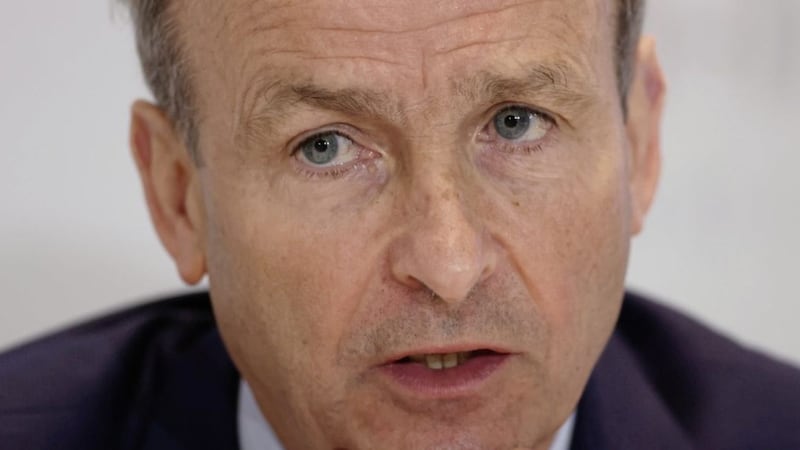TAOISEACH Micheál Martin believes the protocol does not undermine Northern Ireland’s constitutional status or the principle of consent.
Mr Martin was speaking to The Irish News in Co Fermanagh yesterday in the wake of Thursday night’s loyalist protest on Belfast’s Shankill Road and amid ongoing unionist disquiet over the post-Brexit trade arrangements agreed by the EU and British government.
He said there were positive aspects of the protocol that were rarely highlighted, such as the continued seamless cross-border movement of dairy products, and that the arrangements introduced at the start of the year put the north in a “good position” in terms of attracting overseas investment.
The taoiseach said Edwin Poots, who the taoiseach met in Dublin earlier this month, had a “different perspective” on checks on goods arriving from Britain but that the DUP leader acknowledged they were part of a deal that the UK and EU “signed off on”.
Mr Martin said there was an opportunity to resolve the problems with the protocol “if there is a will”.
Earlier this week, the US administration voiced concern about the manner in which the British government was failing to fulfil its obligations under the terms of the Withdrawal Agreement.
However, Boris Johnson has insisted President Biden had not rebuked him over post-Brexit tensions in the north.
When asked if problems with the protocol were being exaggerated, the taoiseach said the issues “should not be at the level of constitutional status or identity status” and were “technical trade issues”.
He said Brexit had also created difficulties for businesses in Britain.
“These are issues of a scale that can be resolved at the right level,” he said.
“I don’t want to cast aspersions on anybody’s perceptions on this but in our view politicians can resolve this, it doesn’t need to be something that has people on the street.”
Mr Martin was also sceptical about persistent unionist claims that his predecessor Leo Varadkar used a potential upsurge in dissident republican violence to convince the EU that there could be no hard border in Ireland.
The episode in which Mr Varadkar brought a copy of the Irish Times newspaper to a European Council meeting in 2018 is regularly cited by unionists, including Mr Poots, in response to claims that loyalists are threatening violence in opposition to the protocol.
The paper in question featured a story on its front page about an IRA bombing of a border customs post in 1972 which left nine people dead.
“We would make the point first of all that that in itself isn’t the reason the protocol was signed,” the taoiseach said.
Mr Martin said the protocol was “detailed worked-out arrangement”, which while having political oversight, was “highly technocratic”.
He also noted that Theresa May was committed to seamless all-Ireland cross-border trade.
“The idea that it was it was the presentation of an Irish Times' front page at an EU meeting that was the key moment is overplayed by unionism and not the true story,” he said
Mr Martin said resolving the problems was not solely about assuaging unionists but was about getting an agreement that satisfied all parties to the agreement.








